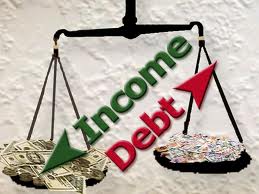VA Home Loans
Advantages of VA The Loan
The VA Home Loan is a government home loan program available to American Service Veterans that is arguably the best loan program out there. The VA home loan requires no money down, no reserve, and essentially no money out of pocket. They have the same interest rate as a 3 ½% down FHA loan but with no down payment, no mortgage insurance and a higher dollar limit.
Eligibility for VA Loans
VA loans require prior service with a discharge other than dishonorable. Veterans are required to submit a copy of their DD214 with their loan application. Active duty military are eligible for VA loans after serving 24 months of active duty. Reserve and National Guard personnel are eligible for VA loans after six years of service.
Time in service requirements are shorter in some circumstances, such as war time veterans and disabled veterans. There are also provisions for surviving spouses.
Maximum Loan Limit
There is no loan limit for a VA loan as of Jan 1, 2020. This means Veterans can get a no down payment loan for as much home as they afford to make the payments on based on their income. In the past, Loan limits on VA loans have been tied to the conforming conventional loan. Loan originators may still have loan overlays that have maximum loan limits.
Credit score requirements
The VA does not have a minimum FICO credit score requirement for VA barrowers. The VA requires that the lender review the entire loan profile. Individual lenders are allowed to put credit requirement overlays that have tighter restrictions than the minimum program requirements. Most VA lenders are going to require a 620 minimum credit score and higher for very large loans.
If your score is below 620 but the rest of your borrower profile looks real good, you may want to shop around with different lenders.
Debt to Income Ratio

The VA barrower may not exceed a debt to income ratio exceeds 45%.
To figure out what your total debt to income ratio is, total all your monthly recurring debt including car loans, credit cards, student loans and any other loan payment commitments. Then you add your new home expenses to include payment, taxes, insurance and any homeowners’ association dues. This total may not exceed 45% of your combined gross monthly income.
Differed student loans will be considered as an obligation of 1% of the loan balance per month.
Closing Costs

There are closing costs associated with a VA loan. The amount of the closing costs varies from loan to loan. Some of the costs are fixed and some depend on the amount of the loan. You can approximate an additional 3% to 4% on top of the borrowed amount for closing costs on a VA loan. The program allows some of the closing costs to be paid by the seller and others to be rolled into the loan making the VA loan about as close to a no money out of pocket loan as there is.
Out of Pocket Expense
VA loans often cost the borrower nothing out of pocket. The can be for 100% of the appraised value and have some of the loan costs rolled into the loan. VA loans also allow for the seller to contribute up to 4% additional for the buyer’s closing costs. Additionally, VA barrowers are not required to have a cash reserve.
The home inspection is not a loan requirement and therefore not a loan expense. It is always recommended for a buyer to get a home inspection and this is an out of pocket expense paid by the buyer.
Funding Fee
A VA mortgage does not require mortgage insurance. Mortgage insurance is required on FHA loans and conventional loans with less than 20% down payment. It is paid by the barrower each month and protects the lender if the barrower defaults and the sail of the home does not cover the outstanding debt. The current annual FHA mortgage insurance rate for a 3 ½% down FHA mortgage is .85% of the principal.
A funding fee is similar to private mortgage insurance in that it is protection for the lender if the barrower defaults on the loan. A funding fee is charged up front, added to the loan balance and financed over the life of the loan.
For no money down VA loans the funding fee is 2.3% of the loan amount. If the veteran is able to put 5% down, the funding fee is 1.65% and drops to 1.4% with 10% down. These rate are the same whether the veteran was Active Duty, Reserve or National Guard.
If the loan is kept for more than just a few years, the up-front funding fee pencils out far better than the mortgage insurance paid monthly for the life of the loan.
Types of Property
The VA loans are designed to be used for an owner occupied home. They are intended for primary residence, not secondary residence or vacation homes. They can be used for condominiums, houses, or manufactured homes on land.
The VA loan can be used to buy a manufactured home on land even if it has been moved from its original location. Other loan programs allow initial move on of manufactured homes only.
VA loans may be used for raw land to build a home on or put a manufactured home on. They may not be used to buy raw land without the intent of putting a home on it.
They may be used to purchase multi-unit residential homes, duplexes, and apartments. When multi-unit homes are bought with VA loans, they may not exceed four units and the owner must occupy one of the units. VA loans may also be used to buy homes with business space though the business space may not exceed 25% of the total space.
Multiple Use of VA Loans
A borrower may use their VA loan multiple times as long as they are in good standing. If you sell your home or pay your VA loan off, you can use your VA loan again.
For subsequent loan uses with no down payment, the funding fee goes from 2.3% to 3.6%. With a minimum of 5% down the funding fee rates are the same for subsequent use as for first time use.
There are no prepayment penalties associated with a VA loan.
VA loans are assumable but if someone assumes your VA loan you are not eligible for another VA loan, until that loan gets cleared up.
VA Inspection
There is not a special VA inspection. VA loans do however require that homes meet certain minimum standards. The appraiser who does the appraisal for a VA loan needs to be certified as a VA appraiser, as well as being a certified appraiser in that state. Though they are looking for the home to meet these standards, this is not a home inspection. It is still advisable to get a home inspected by a certified home inspector before you buy it.
VA Refinance
The VA Loan may be used for refinancing a home for qualified buyers. If the current loan is a VA loan, the refinance can be for the full value of the house. If the current loan is something other than a VA Loan, it may be used to refinance up to 90% of the value of the home.
written by:Todd Hays


